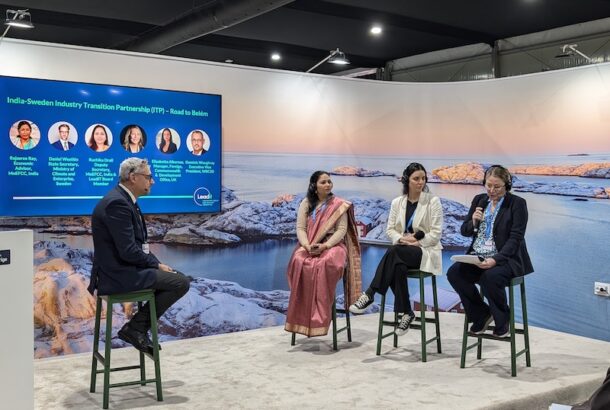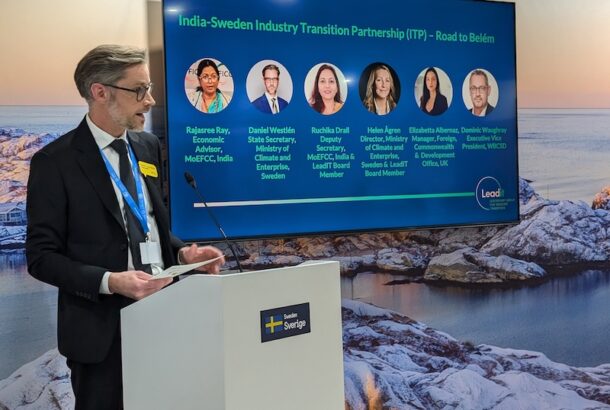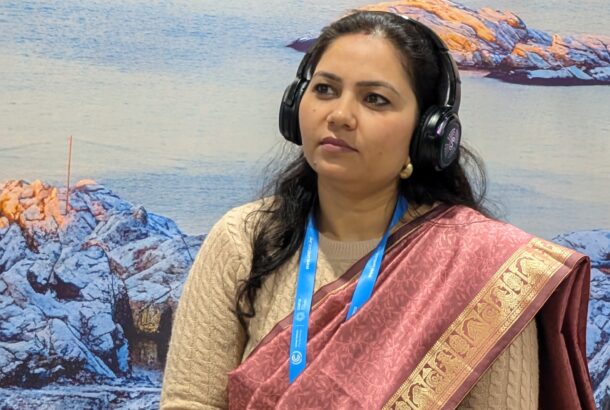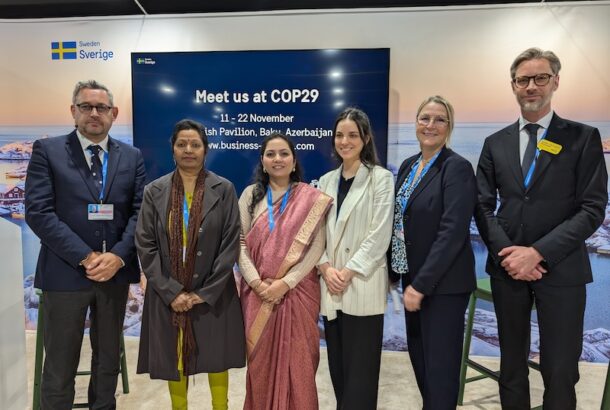Stakeholders show confidence as India-Sweden Industry Transition Partnership makes progress.
The progress of the India-Sweden Industry Transition Partnership in its first year was outlined at a LeadIT event at COP29. This includes bringing together a range of stakeholders who’ve identified key technologies and financial resources to accelerate the decarbonization of steel and cement.

The India-Sweden Industry Transition Partnership (ITP) was launched, as part of LeadIT, by Indian Prime Minister Narendra Modi and Swedish Prime Minister Ulf Kristersson at COP28, held in 2023 in Dubai. The ITP’s mission is to accelerate the global decarbonization of heavy industry. It aims to do this by unlocking flagship projects in the steel and cement sectors and helping foster enabling conditions for decarbonization by supporting innovation and research and development, mobilizing finance and advancing market-based mechanisms.
Prime Minister Modi and Prime Minster Kristersson committed to return to COP30 in Brazil next year to deliver tangible results from the partnership. With 12 months to go, LeadIT hosted an event at COP29 in Baku, to outline the progress so far and highlight links to the sister partnership, the Brazil-UK Industry Decarbonization and Hydrogen Hubs.

The event began with opening remarks from Rajasree Ray, Economic Advisor, Ministry of Finance, India, and Daniel Westlén, State Secretary, Ministry of Climate and Enterprise, Sweden. It continued with a panel discussion featuring LeadIT board members Ruchika Drall, Deputy Secretary, Ministry of Environment, Forests and Climate Change, India, and Helen Ågren, Director, Ministry of Climate and Enterprise, Sweden.
“The India-Sweden Industry Transition Partnership is an excellent example of how Sweden and India are working together in partnership to realize shared interests, delivering on the goal of the Paris Agreement, accelerating the green transition and increasing competitiveness, development and prosperity in our countries as well as globally.”
Daniel Westlén
State Secretary, Ministry of Climate and Enterprise, Sweden
Unique working groups
Ms Drall outlined how the work of the ITP has been divided into five working groups, made of up of committed and essential stakeholders from government, industry and academia, that are addressing the five key focus areas for the ITP:
- cement
- steel
- innovation
- carbon markets
- finance
“The most exciting thing about this initiative is the kind of confidence that industry and the stakeholders have shown in us,” said Ms Drall. She set out some of “the considerable progress with respect to the objectives that we have for the ITP,” including by the steel and cement working groups which have identified key technologies to develop further, such as iron ore beneficiation, carbon capture and utilization and green hydrogen.

She added that the innovation working group will soon be ready to set up a center of excellence that brings stakeholders from India and Sweden together to develop these key technologies through collaboration.
The carbon market working group is meanwhile working on how to reduce emissions in industry in the most cost-effective manner using market-based approaches. While the finance working group has mapped different kinds of resources that can be made available for these initiatives.
A matchmaking exercise
Ms Ågren added that the initial phase of the ITP involved the identification of the vital stakeholders. A more deeper “matchmaking exercise” is now taking place, she added, in which companies are coming to together to deliver flagship projects.
“This involves businesses identifying what joint projects they are prepared to engage in together,” she said. “And identifying shared experiences in the policy space, to speed up the transition, and the supporting mechanisms, such as funding and capacity building that could help us, and on technology co-development.”
Ms Ågren also emphasized the importance of public and private partnerships. “We hear a lot about public private partnerships, but we don’t see that often at this broad scale. And that is what we really look forward to. The concrete projects on the ground won’t happen unless we have this multi stakeholder approach and get everybody excited about this.”

Sister partnership
Elizabetta Albernaz, Manager, Foreign, Commonwealth and Development Office, UK, is the manager of the India-Sweden ITP’s sister initiative – the Brazil-UK Industry Decarbonization and Hydrogen Hubs. She also spoke on the panel at the ITP event at COP29, explaining the background of the Brazil-UK partnership and how the two partnerships can benefit each other.
Ms Drall added that the India-Sweden ITP and Brazil-UK partnership can learn from each other: “We have a lot to share with respect to the architecture and how we go about it. With that in mind it will be good to have more frequent exchanges between the two partnerships, to be able to learn from each other about how we have been trying to make them effective.”
By COP30, the India-Sweden ITP aims to have enabled a pipeline of decarbonization projects in the steel and cement sectors through pre-feasibility studies, financing and joint initiatives developed to spur innovation.
“It is one year now since the ITP launch and we are glad to share with you that we have made a great amount of progress, and we are hopeful that we will have made a great amount of progress by COP30,”
Rajasree Ray
Economic Advisor, Ministry of Finance, India
